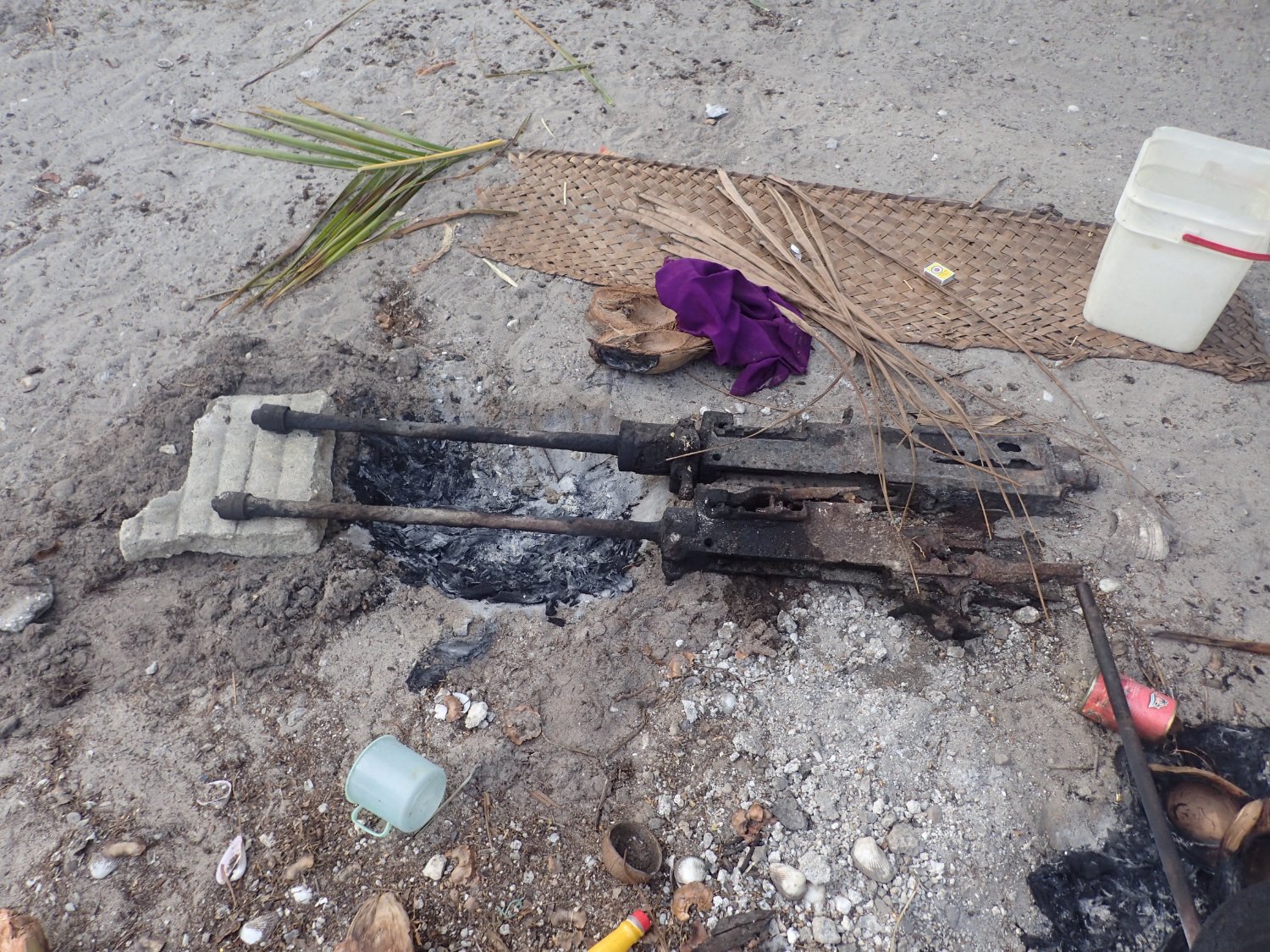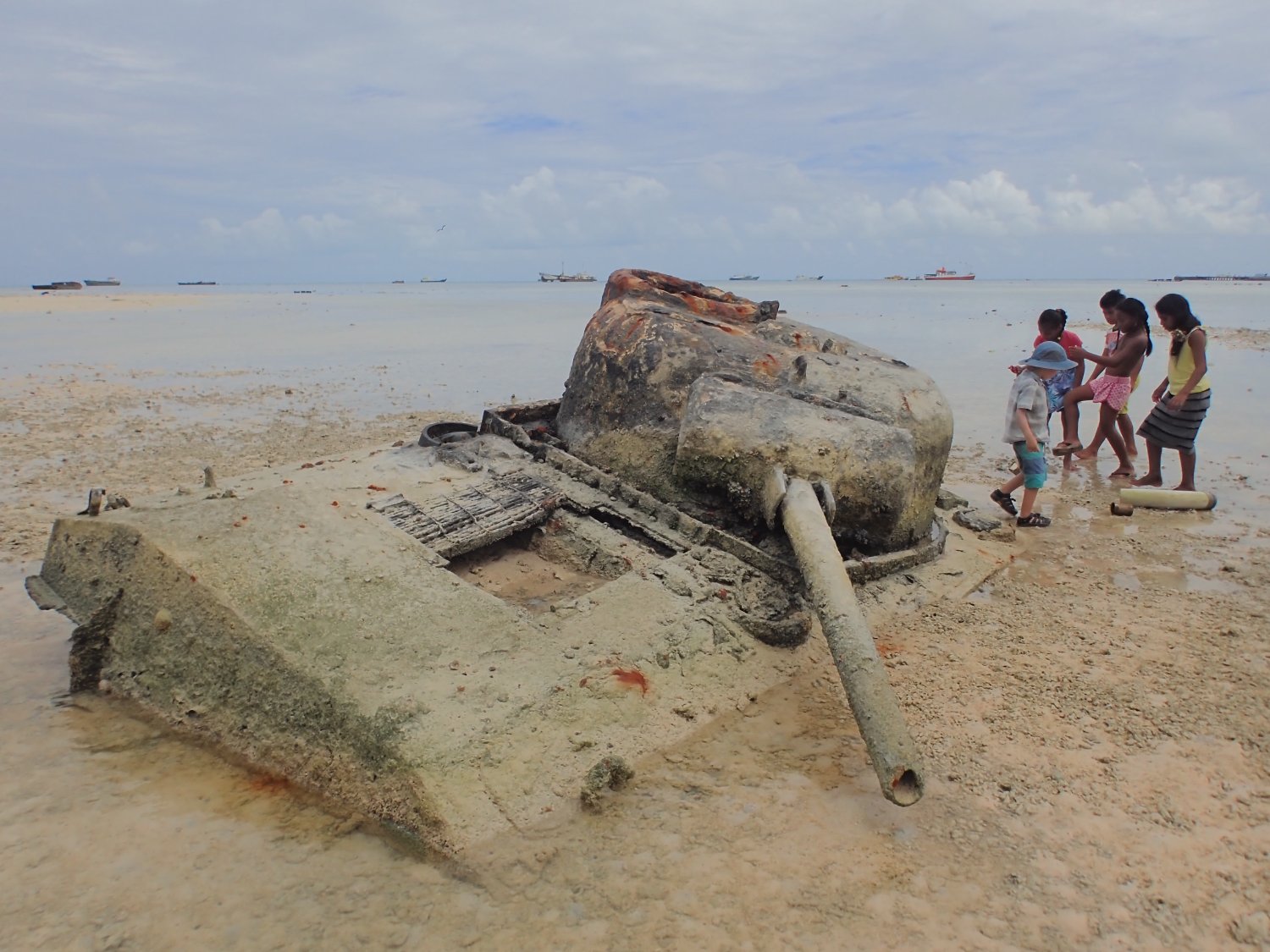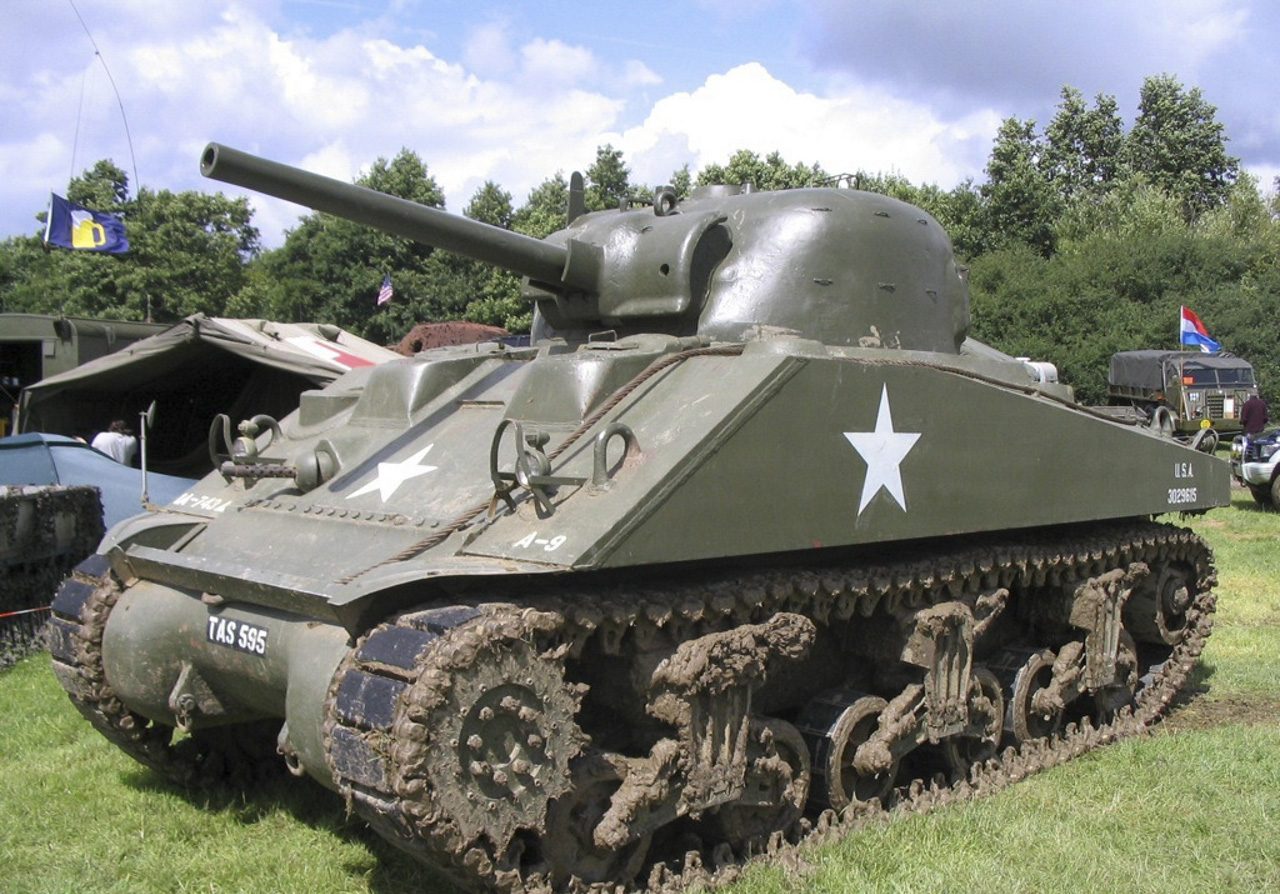I have been to Tarawa (Kiribati), and there is a few wrecks around the place. I’ll dig up a couple if photos that we have.
Any more info or details would be great!
On an outer island of Kiribati (Abimama), we found these used to out their pots on their cooking fires.
8 October 2017

This should be its own post!
mildly interesting?
So I couldn’t really make it out and put it through one of those ai image deblur tools. Kind of fucked it up tbh but it did make the kitten easier to see

Thank you for the effort posting these pictures.
it was a fun trip down memory lane. I LOVE the photos of the cooking machine guns. that is a memory that has stuck with me for years. I was so shocked to see them!
A wrecked america tank near Betio, South Tarawa, from the battle of Tarawa.
22 October 2017

That’s cool af
That looks like an early version of the M4A2 with the 75mm cannon, from before they upgraded the M4 series to the 76mm anti-tank gun. Early American tank doctrine (and pretty much every country early into the war except for Germany) was still following WW1 era strategies which largely relegated tanks to infrantry support roles such as destroying bunkers and machine gun emplacements, while the Americans employed fast, lightly armored vehicles with powerful guns as “tank hunters” to quickly move across the battlefield and take out tanks as needed.
Similarly, though it’s much harder to tell because of how much of the tank is destroyed, I believe the tank in the OP is a Ha-Go, which was a tank from the Sino-Russian war that was used in early WW2 and capable of anti-infantry duties but was unable to deal with tanks in any real capacity due to its weak cannon and thin armor that couldn’t protect against pretty much anything larger than machine gun rounds.
It would soon become clear to every country that tank on tank combat was an inevitability and wouldn’t give enough time for specialized anti-tank vehicles to respond to enemy tanks after the fact. Tanks would quickly begin to be designed to be able to deal with other tanks as well as their original infantry support roles, and older models were quickly upgraded with larger, more powerful guns to deal with the thick armor of tanks.
The Ha-Go:
An M4A2 with the 75mm cannon:

And an M4A2 with the larger, anti-tank 76mm cannon:

Yeah, i reckon it was the smaller cannon. I had another look to see if i had photos from different angles, but no. Looking at where the barrel joins the turret is probably the most obvious point of differentiation. It has two flanges that stick out on the side, which matches the smaller cannon.
What i find interesting, is that i never realised the shape of the tank. As it is buried so far down, it was no obvious at all. Thanks for the info and sharing the photos.
It’s definitely the early gun, they had a very distinct curved mantlet with both the flanges on the side of the cannon barrel and a notch on one side of the bottom edge, and the newer guns had that large muzzle brake on them.
What’s harder to tell from that angle is whether it’s an M4A2 or some other variant. I think it’s the A2 based on the little piece of metal that goes all the way around the neck of the turret on the body there, but the best way to tell would be a quick look at the front corners. The A2 and newer tanks had a welded body with a sharp corner and easily visible weld lines where the front plate meets the side, while the first Shermans had a full one piece cast steel body that had curved edges to it.
also, the Ha-Go tank photo did not work.
A shame, but I just grabbed a photo off Google anyways. If you’re curious, you can find plenty of them with a quick search, but it’s basically a tiny two-man tank about the size of a modern SUV at most.
What you see in the photo is the remains of the tank chassis, with a machine mounted roughly in the middle and the open driver’s hatch next to it. Above that should be a turret, but that’s clearly missing and the engine in the back looks like it was crushed by something.



